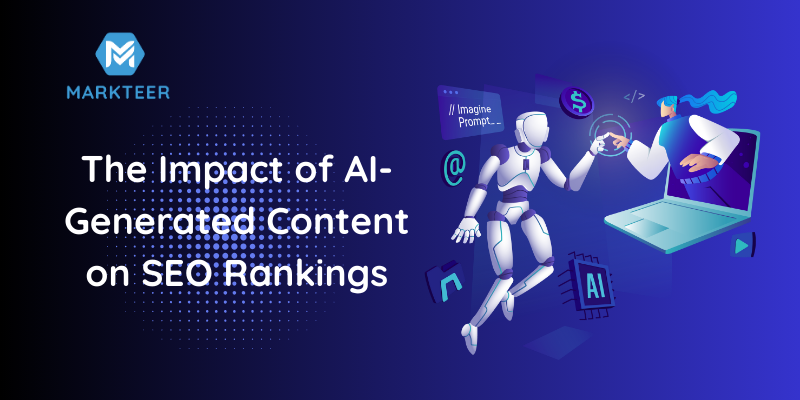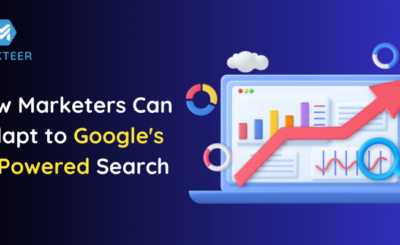The digital content landscape is undergoing a significant transformation. With rapid advancements in artificial intelligence, AI-generated content is no longer a novelty—it’s fast becoming a core pillar of modern marketing strategies. From long-form blog posts and social media captions to product descriptions and email campaigns, AI tools are now producing content at a scale and speed that was previously unthinkable just a few years ago.
A 2024 report by MarketingProfs found that 90% of marketers globally now use AI tools in some capacity to support content creation. This widespread adoption signals a seismic shift in how brands develop and distribute digital content.
But as this trend accelerates, a central question looms: How does AI-generated content affect SEO rankings? Can it help brands climb the SERPs (Search Engine Results Pages), or does it introduce visibility, credibility, and long-term organic performance risks?
This article examines how AI content interacts with search engine algorithms, the potential SEO benefits and drawbacks, and how brands can use AI responsibly to gain a competitive edge online.
What Is AI-Generated Content & How Does It Work?
AI-generated content refers to digital media, such as text, images, video, or audio, created by artificial intelligence models. These tools, such as OpenAI’s ChatGPT or Google Gemini, rely on massive language models trained on trillions of words and billions of documents to simulate human-like writing and creativity.
How It Works:
- Training: AI models are trained on publicly available data, web pages, books, and structured knowledge bases.
- Prompt Input: A user enters a prompt or query that guides the AI’s generation process.
- Content Creation: The model generates content based on its understanding of language, structure, and context.
- Human Post-Editing: Most high-performing brands rely on human editors to polish, fact-check, and optimize AI content before publication.
This approach offers remarkable efficiency, enabling companies to scale up their content marketing operations dramatically. According to a 2023 Deloitte Digital study, businesses that use AI reduce their time to publish by 65% on average.
Google’s Evolving Perspective on AI Content
For years, there was confusion about how Google would treat AI-generated content. Would it be penalized? Ignored? Promoted?
Google’s Official Stance
In a 2023 Search Central Blog update, Google clarified its position: “Using AI to generate content primarily to manipulate ranking in search results violates our spam policies.”
This means AI-generated content is not inherently bad—it just has to follow the same rules as human-written content. That means prioritizing value, originality, accuracy, and user intent.
In fact, with Google’s Helpful Content Update and the increasing emphasis on E-A-T (experience, authoritativeness, and trust), quality content remains king regardless of how it’s created.
AI Content in SERPs: Real Examples and Trends
AI-generated content is already being indexed, ranked, and displayed in various search features:
- Featured Snippets: Many FAQ-style AI answers appear here.
- Rich Results: When paired with proper schema markup, AI-generated content can power how-to sections, reviews, and product data displays.
- Search Generative Experience (SGE): Google’s AI-powered search now summarizes answers using AI, which means AI may write about your AI content!
According to a BrightEdge study (2024), 62% of marketers reported seeing AI-generated content appear in featured snippets, compared to just 28% in 2022—a sign that AI-generated content is becoming visible and thriving in search results.
SEO Benefits of AI-Generated Content
When used strategically, AI-generated content can support and even enhance your SEO performance. Here are some key benefits:
1. Speed and Scale
AI significantly reduces content turnaround time. A 2025 HubSpot survey revealed that marketers using AI tripled their content output while maintaining comparable quality standards.
2. Cost Efficiency
AI helps brands cut costs on ideation, writing, and initial drafts. Platforms like Jasper.ai report up to a 50% reduction in content production costs for enterprise clients.
3. Smarter Topic Ideation
AI tools like Surfer SEO and Frase analyze SERP data and uncover content gaps. A Semrush report noted that AI improved topic ideation accuracy by 67%, especially in competitive niches.
4. Hyper-Personalization
AI-generated content can be tailored to different audience segments, personas, or user intents, enhancing engagement. IBM’s 2023 study found that personalized B2B content powered by AI increased engagement by 80%.
5. Multilingual SEO
AI translation tools like DeepL and Google Translate AI enable scalable global campaigns. Statista data shows that 40% of international SEO growth in 2023 was driven by AI-assisted translation.
Risks of AI Content for SEO (and How to Avoid Them)
While powerful, AI tools can also introduce risks:
1. Thin or Duplicate Content
If you’re mass-producing low-value articles, expect ranking penalties. Google’s spam detection is getting smarter, and a Search Engine Journal analysis confirmed a 3x increase in AI-generated spam penalties in late 2023.
Solution: Always edit AI drafts and enrich them with unique insights or case studies.
2. Hallucinated Facts
AI sometimes fabricates data or misquotes sources.
Solution: Cross-reference AI outputs with fundamental research, including outbound links to reputable sources.
3. Lack of Human Emotion
AI lacks empathy, nuance, and storytelling ability.
Solution: Let humans add tone, emotional hooks, and storytelling layers.
Best Practices to Use AI Content Without Hurting SEO
To ensure your AI content boosts SEO instead of harming it, follow these best practices:
1. Always Post-Edit
Use tools like Grammarly, Hemingway Editor, or human editors to ensure clarity, coherence, and consistency of tone. A Content Marketing Institute report found that 75% of high-performing AI campaigns included a human editor in the workflow.
2. Optimize for E-E-A-T
Google prioritizes experience and trust. Make sure to:
- Attribute articles to real authors or experts.
- Add firsthand case studies, customer examples, or testimonials.
- Use structured data, such as Author, Organization, and FAQ schema.
3. Don’t Automate at Scale Without Strategy
Avoid pushing out hundreds of similar AI articles. Instead, combine human creativity with AI efficiency.
4. Use Schema Markup
Apply structured data (e.g., Article, Product, HowTo) to help Google understand your content and boost rich snippet eligibility. Tools like Merkle Schema Markup Generator can help.
The Future of SEO in the Age of Generative AI
AI will continue shaping how we create, discover, and engage with content online.
1. Generative AI Will Power 30% of Search Traffic
According to Gartner, AI-powered search interfaces like SGE will influence 30% of search traffic by 2026.
2. Real-Time SEO Optimization
Tools like Surfer SEO, Clearscope, and MarketMuse already provide real-time SEO insights powered by AI—expect deeper integration and predictive ranking capabilities soon.
3. Stricter Content Quality Controls
As AI content floods the web, Google will rely on its AI models to detect low-value, misleading, or repetitive content. Quality will become a more significant differentiator than ever.
Final Thoughts
AI solutions are reshaping content marketing and SEO faster than many anticipated. However, Google and industry experts are clear that AI is a tool, not a shortcut.
Use it wisely, refine it with human expertise, and optimize every word for genuine user value—and you’ll not only avoid penalties but thrive in the evolving SEO ecosystem.
Whether you’re a solo creator or a global brand, the most successful content strategies will combine AI’s efficiency with human creativity and editorial integrity.






